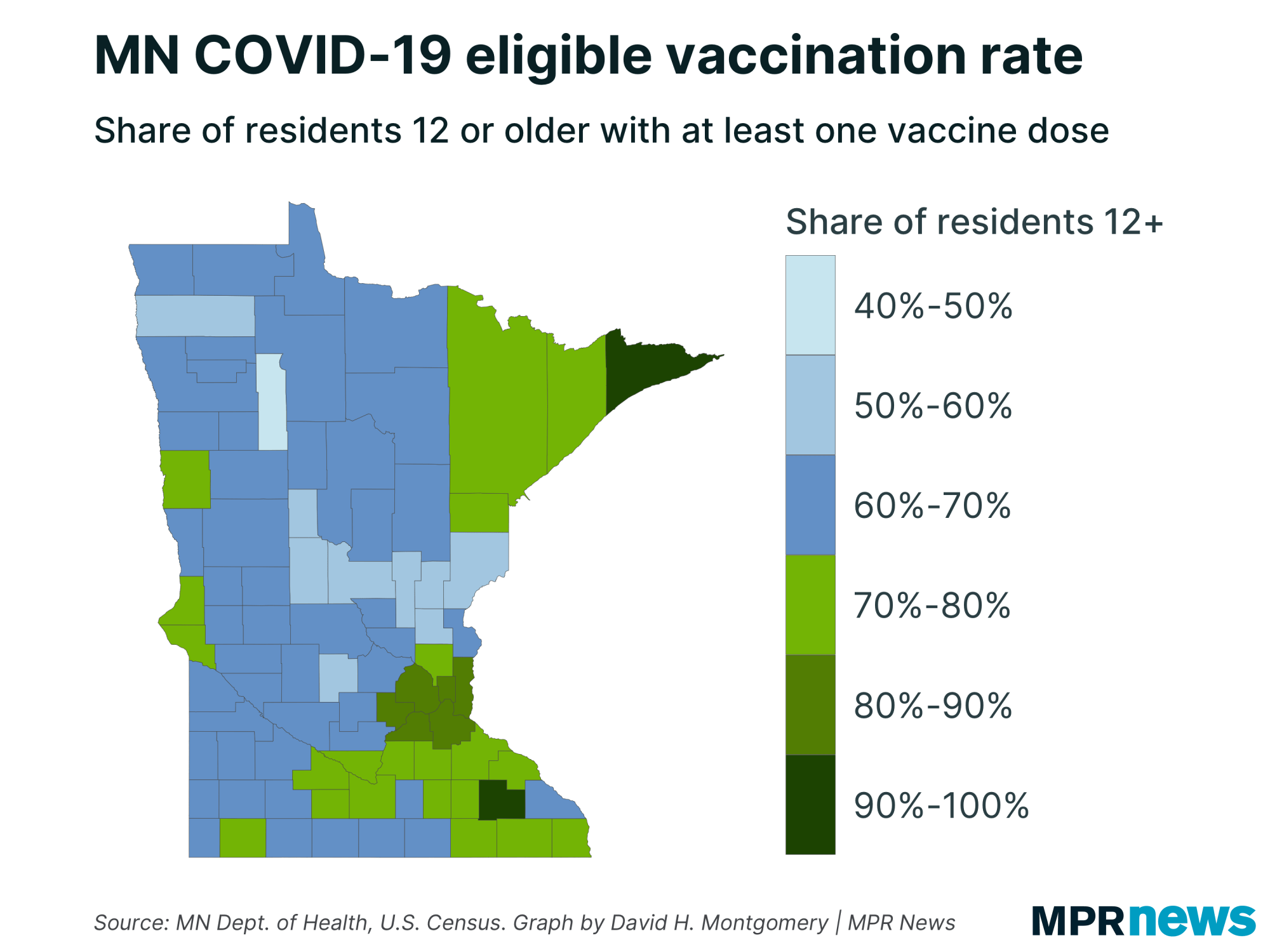Latest on COVID in MN: Pandemic path brightens as cases, hospital needs fall

Go Deeper.
Create an account or log in to save stories.
Like this?
Thanks for liking this story! We have added it to a list of your favorite stories.
3 things to know:
1,161 hospitalized; 179 in ICU, lowest since early September
New cases counts trending at lowest level since Dec. 31
Duluth’s mayor says city ending mask order Saturday
Updated 2:20 p.m.
Key metrics tracking the spread of COVID-19 in Minnesota continue to show the current surge in retreat, with new and active cases, positive test rates and hospital bed use all falling steadily.
Wednesday’s numbers build on recent evidence of an ebb in the pandemic wave that started climbing in late summer and slammed Minnesota following the year-end holiday season.
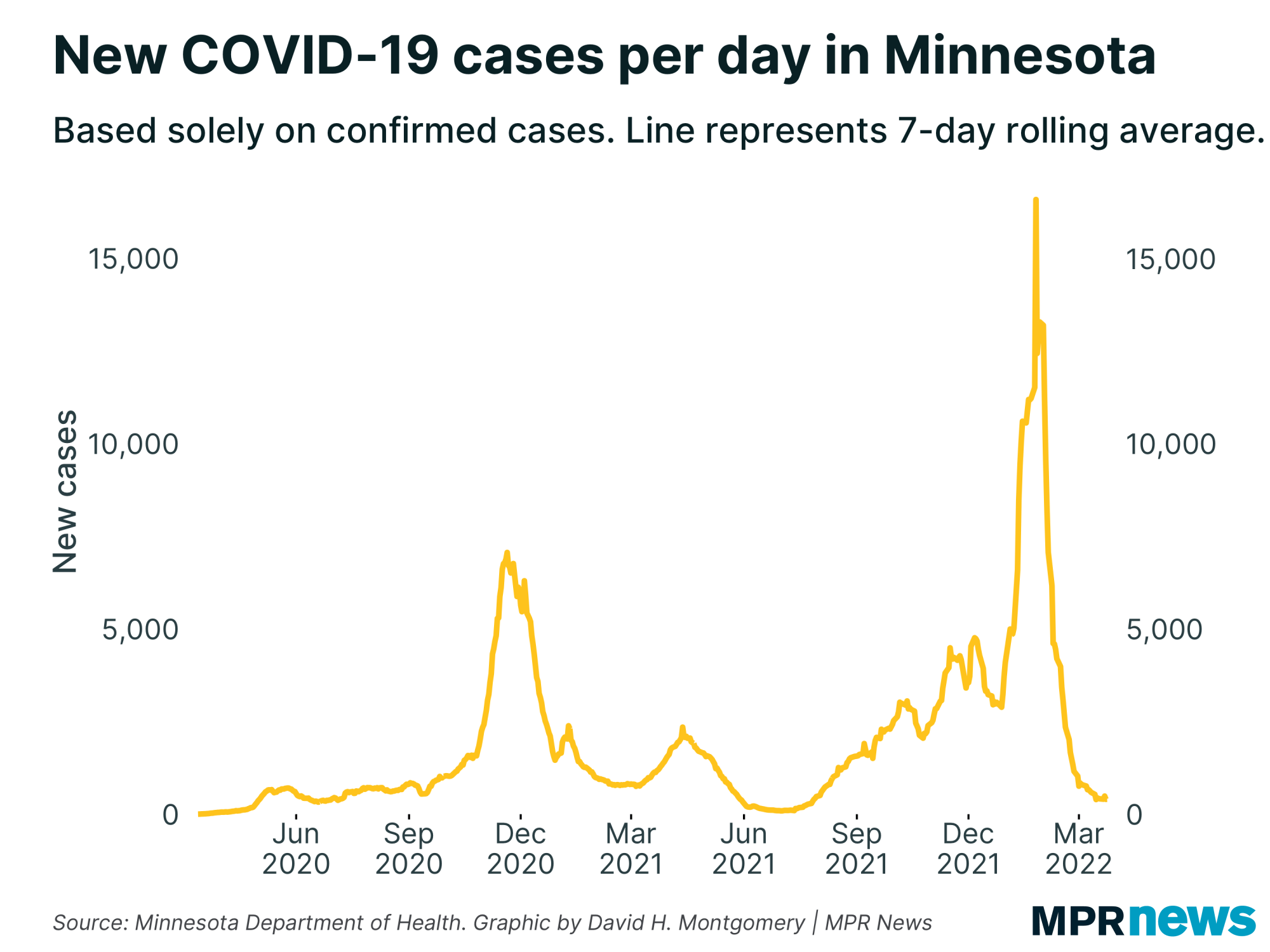
Data from the Minnesota Department of Health indicates new cases and positivity rate peaked about a month ago. That likely represents when COVID-19 peaked in the Twin Cities metro area, which was whacked by COVID’s omicron mutation before the rest of the state.
Overall, there are around 25,000 active, confirmed COVID-19 cases in Minnesota. That’s down dramatically from mid-January, when active cases topped 67,000.
Turn Up Your Support
MPR News helps you turn down the noise and build shared understanding. Turn up your support for this public resource and keep trusted journalism accessible to all.
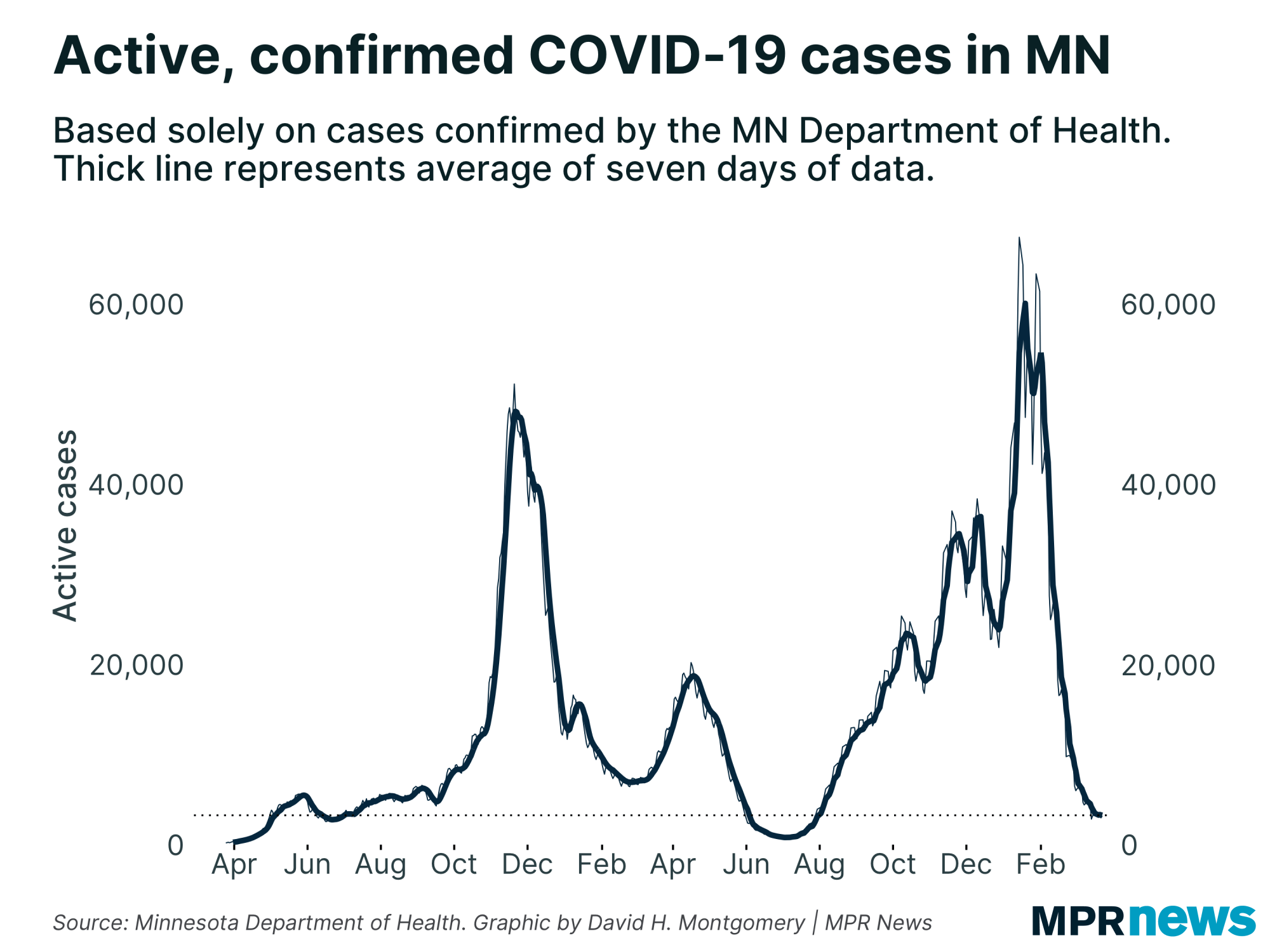
Hospitalizations are still relatively high — 1,161 — but trending down. Intensive care demands are at their lowest point since early September, with 179 COVID patients currently occupying ICU beds.
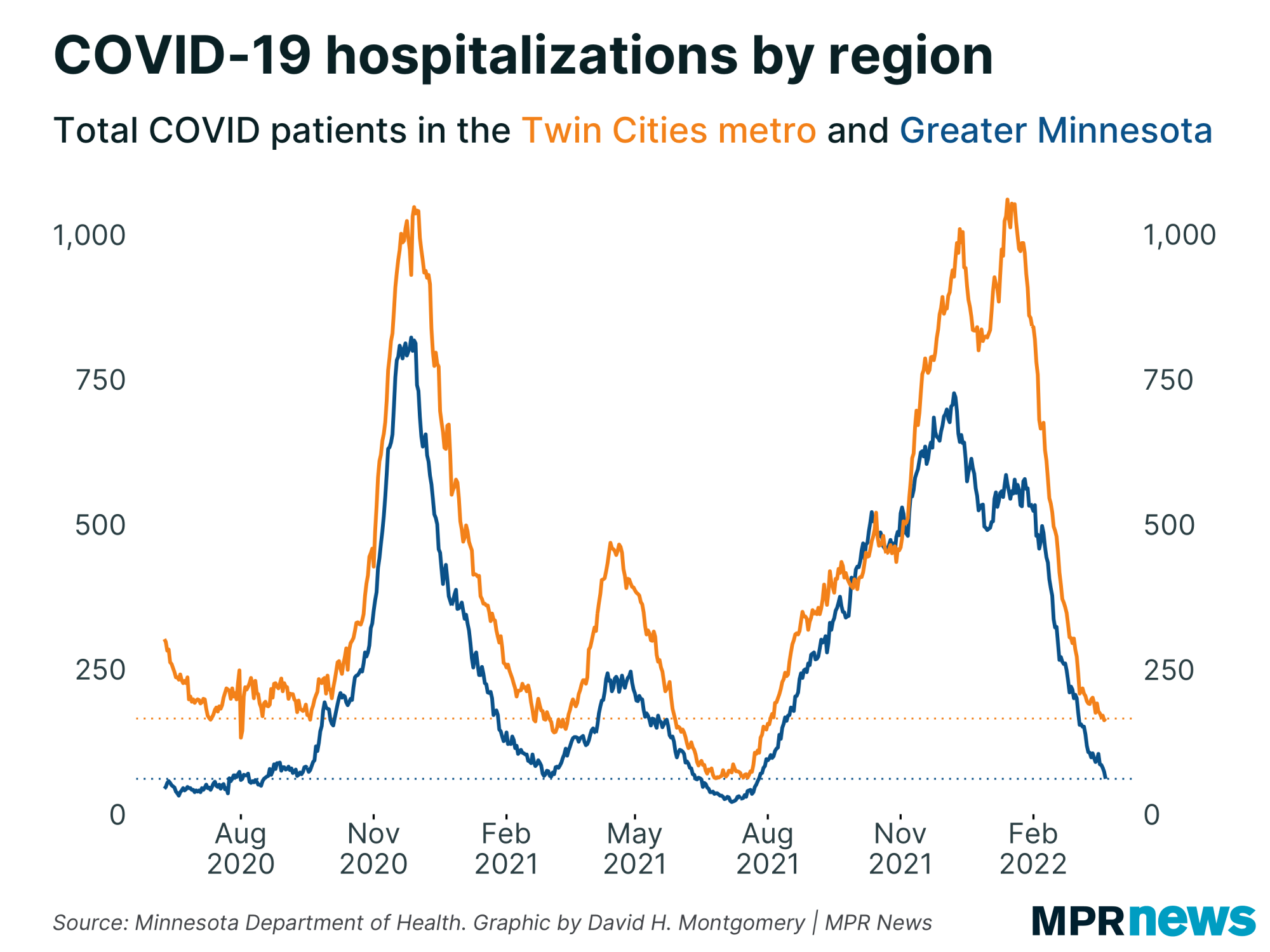
Wastewater data released last week by the Metropolitan Council showed COVID-19 rates in the Twin Cities region back to where they were in early November and still falling, as of Jan. 31.
With the picture improving rapidly, Duluth Mayor Emily Larson said Wednesday she won’t extend the 30-day masking requirement she ordered for the city last month as cases climbed. That’s set to expire Saturday.
In St. Paul, Mayor Melvin Carter is considering ending the city’s requirement that bar and restaurant patrons show proof of vaccination or a recent negative COVID test when entering places serving food and drink.
Vigilance is still needed as the numbers are still somewhat high. In July, Minnesota appeared to be through the worst of the pandemic, and then the omicron variant hit hard.
The most recent map from the federal Centers for Disease Control and Prevention shows all Minnesota counties with a high rate of viral transmission.
The current wave, though, appears to be past its peak, Mayo Clinic data scientist Curtis Storlie told MPR News in late January. There will continue to be thousands more positive test results and hospitalizations, he added, so people should still take precautions.

Minnesota’s positive test rate has been moving steadily downward, with sample data showing positivity falling significantly. If recent trends continue, it’s possible Minnesota this weekend could fall below 5 percent, the threshold of concern for state health officials.

The state's death toll stands at 11,722 including 40 newly reported deaths. Deaths typically follow a surge in cases and hospitalizations. In past COVID-19 waves, it’s been the last of the key metrics to improve.
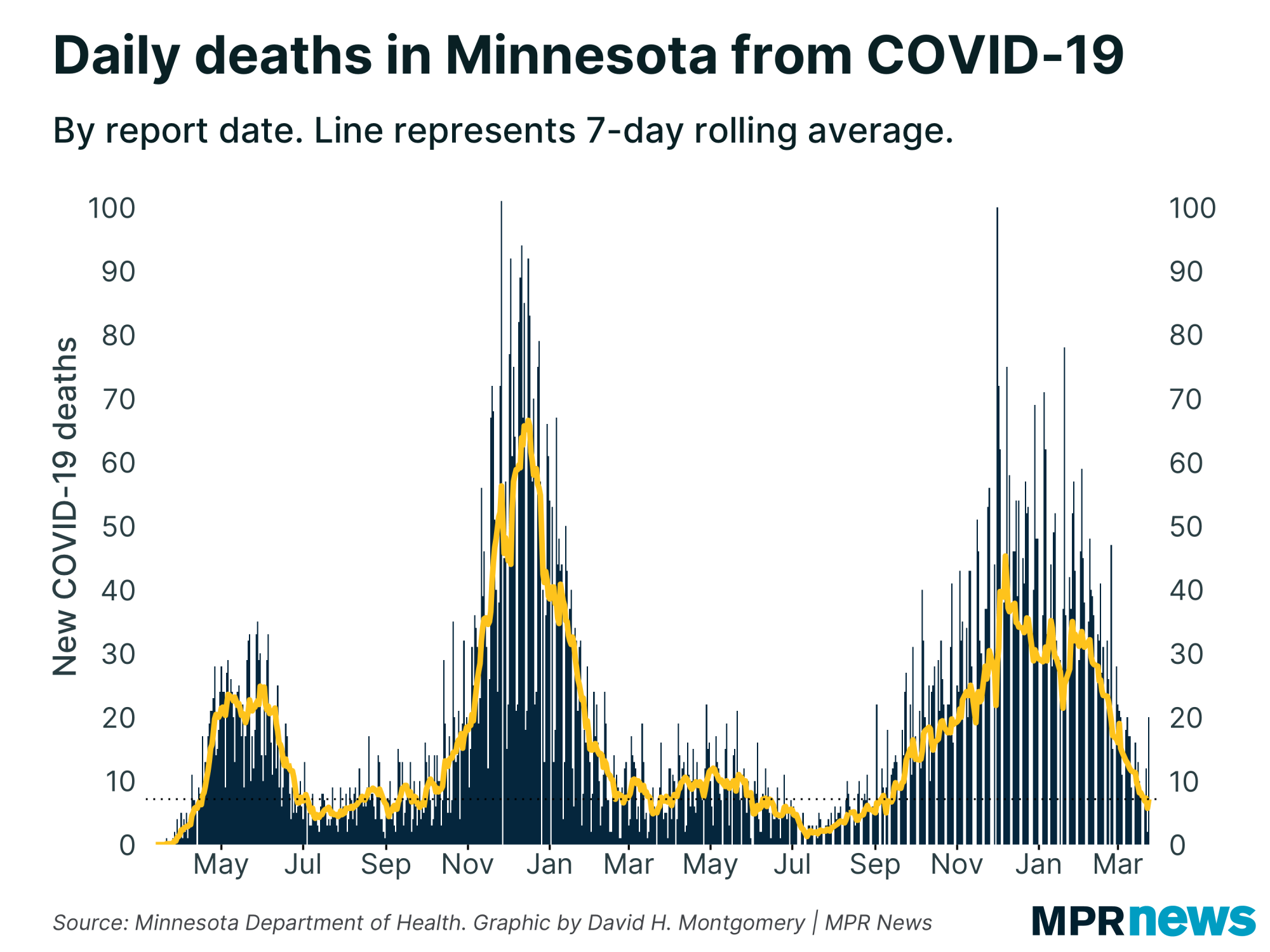
Thanks to vaccinations, Minnesota is better positioned now than during its fall 2020 and spring 2021 spikes: Nearly 78 percent of state residents age 12 and older have received at least one vaccination shot, with more than 73 percent now completely vaccinated.
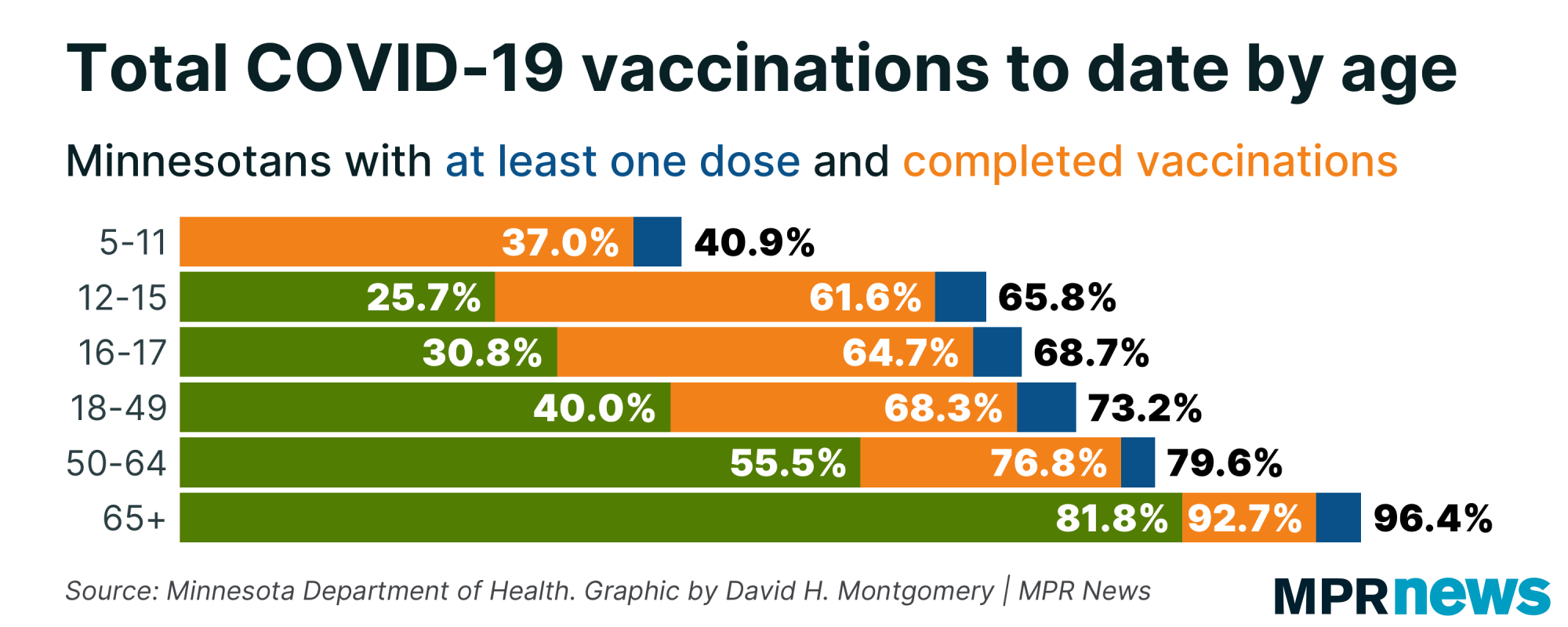
But the struggle continues to get first shots into more Minnesotans, especially in central Minnesota.
